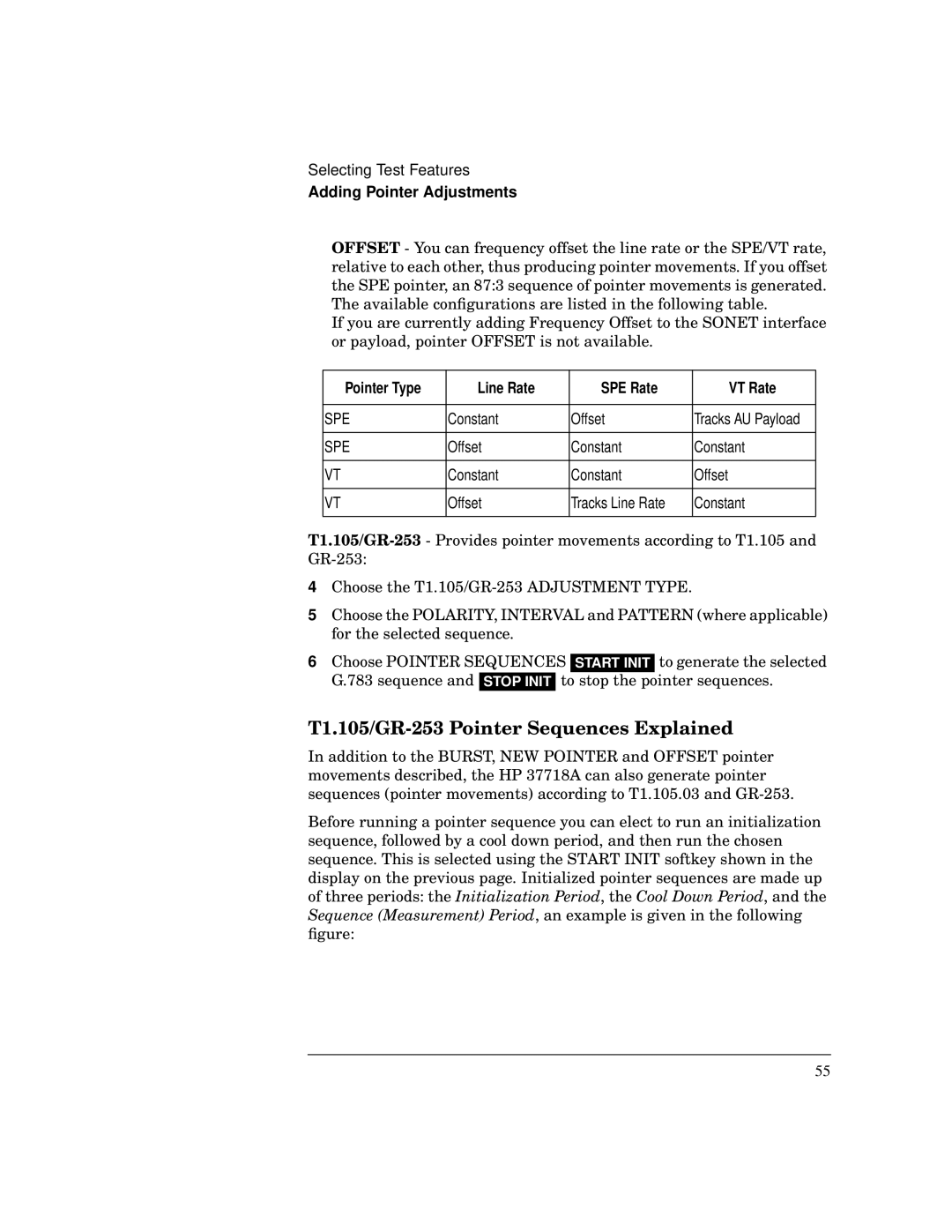
Selecting Test Features
Adding Pointer Adjustments
OFFSET - You can frequency offset the line rate or the SPE/VT rate, relative to each other, thus producing pointer movements. If you offset the SPE pointer, an 87:3 sequence of pointer movements is generated. The available configurations are listed in the following table.
If you are currently adding Frequency Offset to the SONET interface or payload, pointer OFFSET is not available.
Pointer Type | Line Rate | SPE Rate | VT Rate |
|
|
|
|
SPE | Constant | Offset | Tracks AU Payload |
|
|
|
|
SPE | Offset | Constant | Constant |
|
|
|
|
VT | Constant | Constant | Offset |
|
|
|
|
VT | Offset | Tracks Line Rate | Constant |
|
|
|
|
4Choose the
5Choose the POLARITY, INTERVAL and PATTERN (where applicable) for the selected sequence.
6Choose POINTER SEQUENCES START INIT to generate the selected G.783 sequence and STOP INIT to stop the pointer sequences.
T1.105/GR-253 Pointer Sequences Explained
In addition to the BURST, NEW POINTER and OFFSET pointer movements described, the HP 37718A can also generate pointer sequences (pointer movements) according to T1.105.03 and
Before running a pointer sequence you can elect to run an initialization sequence, followed by a cool down period, and then run the chosen sequence. This is selected using the START INIT softkey shown in the display on the previous page. Initialized pointer sequences are made up of three periods: the Initialization Period, the Cool Down Period, and the Sequence (Measurement) Period, an example is given in the following figure:
55
